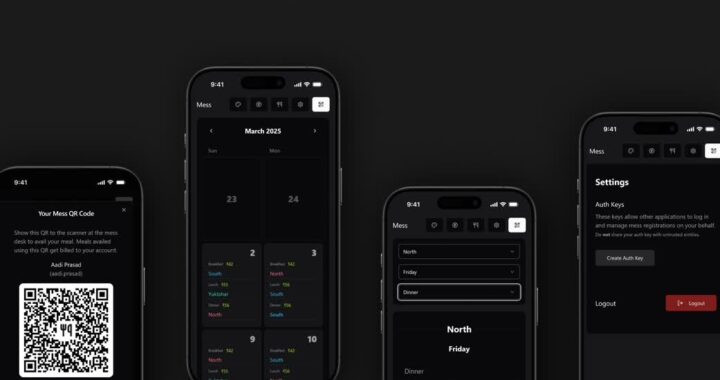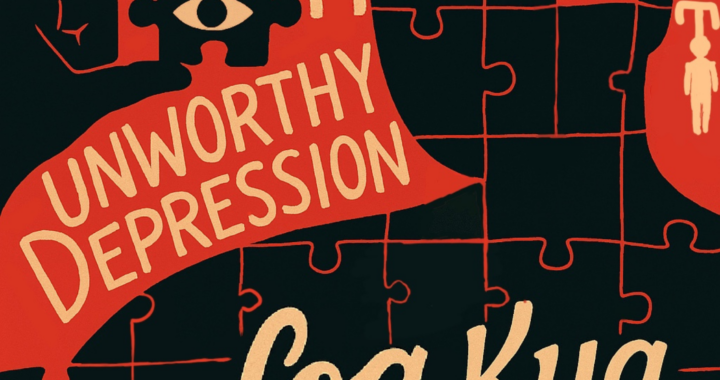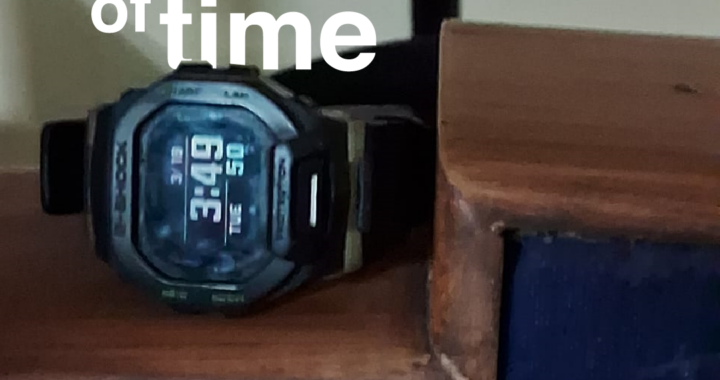Ragging or the “Acceptable” Sexual Harassment

Recently, there were reports of sexual harassment in IIT Bombay. A student of the institute, part of their student mentoring cell, had sexually harassed 15 students.
While discussing the gross violation of trust and responsibility on part of this student, an assertion by a friend got me thinking. Something like this would never go unnoticed or unreported in IIIT. Right?
Right?
Ragging
I will get straight to the point here. While not everyone is ragged or faces ragging in the same way, it is an open secret that IIIT is not a ragging free campus—and some of this ragging is sexual in nature.
A student from IIT Bombay that spoke to Quint about the incidents there lamented about how the issue of the student mentor abusing students was brought to the notice of the authorities, yet nothing was done. He said, that had any of the abused students been female, the complaints would have been taken more seriously and justice would have been swift.
This sentiment finds parallels in the situation in IIIT. Victims of ragging that is sexual in nature, to the best of my knowledge, are always male. Guys sexually abusing guys, for some reason, is still not taken as seriously by society at large—and more specifically here—students themselves and the administration.
What Kind of Sexual Ragging?
While the IIT-B student’s case was glaring because of the physical nature of his actions, sexual abuse need not be physical. First years in IIIT are routinely subject to sexual abuse often not physically involving the perpetrators.
A common form of ragging is to bring two or more first years together, ask them uncomfortable questions that are sexual in nature, and eventually ask them to enact various sex positions. What you would then have is a senior abusing their perceived authority, while watching powerless students enacting doggy style, pretending to perform oral sex on each other, or actually giving a batchmate a lap dance, while being encouraged (coerced) to pretend to enjoy and make moaning sounds in the process. In my limited exposure to this form of ragging, the students are fully clothed, but there is often physical contact between each other. The senior student avoids getting physically involved himself, for fear of “going too far”. An imaginary line between going too far and acceptability is drawn, but this line is far beyond any standards of social acceptability.
“Healthy” Interactions
Ragging is any sort of abuse, humiliation or harassment of junior students by their seniors. Ragging that is sexual in nature is traumatic, but it is only a subset of ragging itself, which causes mental and sometimes physical stress to its victims.
But if asked if ragging should be completely abolished, a sizeable number of students would not be confident in their response that it should. A huge reason for this is the blatant whitewashing of ragging that has taken place. Ragging, now officially termed as “healthy interactions”, are made out to be just that—healthy. Students enter the institute only to learn that ragging, uh sorry, healthy interactions are the only way to make friends from senior batches, and are essential to harden up and get ready to face the brutal world awaiting you outside.
Ragging, unacceptable and abhorrent, insulting and scarring, now hides behind a euphemism that promises the best to its victims. This makes the victim want to be ragged. Though in reality, it’s just the stories that they have been told that make them think they want it. “Mere paas ab Google, Microsoft, Facebook mein dost hai, I can get a referral wherever I like” or “Usne mujhe rag kiya tha first sem mein, but he also ensured that I passed BEC, he is a nice person.” The victims are essentially being sold promises, and in return end up submitting their self esteem, self respect and in some cases—themselves.
The Bond Senior
The abusive senior from IIT-B, was a “machau” or “god” senior, as they call them. Indeed, a Google search for him brings up a video where he speaks for 15 minutes to a large class of first years. He is confident and eloquent, and he holds the attention of his audience from beginning to end. This machau senior, however, was abusive and got away with it precisely because of the perception others had of him. If he is doing it, it must be right.
IIIT has its own version of the machau senior—the “bond”.
Bond seniors often have admirable talents. They could excel at an art, be great at academics, score an internship abroad—or better yet, do all of these. These seniors are then introduced as bonds, and somehow their “bondiyat” then gives them a free pass to get away with abuse, differing in levels of seriousness, but abuse nevertheless.
I don’t mean to imply that all students that are termed bond or an equivalent are abusive, but the idea of being a bond often leads to senior worship, creates a further imbalance in power dynamics, and risks a potential victim doubting themselves instead of standing up against a bond student that enjoys mass support.
Administrative Inaction
About a year and a half ago, an anti ragging disclosure was uploaded on the Institute website, which mentions that there were zero ragging incidents reported (the time frame is unclear). This is a cruel joke played by the administration against all the many victims of ragging, minor or major. Not only did they face abuse, not only did their perpetrators not face action, but their endurance was misconstrued as non-existent and claimed as such. Not only does ragging take place and is commonplace, but the administration is also aware of its existence on campus, through Apex, through parent complaints, and through various reportings by concerned students.
It is not that the administration does nothing, but it does not do enough. First, it relies too much on the Apex to contain ragging. The Apex can be said to have some success with averting violent and other highly serious cases of ragging, but they have failed to do more, thereby legitimising other forms (case in point—the Apex, on several occasions, insisted on terming genuine cases of harassment by the euphemistic “healthy interaction”).
As a student body, the Apex may have myriad issues, and these must be addressed separately, but they cannot be blamed for their inability to ensure that ragging ceases. The administration must take the issue of ragging as seriously as they do the issue of academic dishonesty. Punishments must be made public. First years must be empowered and assured that ragging in any form is inexcusable, and more so—they must be encouraged to come out and speak fearlessly.
Sometimes, some members of the Apex discourage victims from speaking out. They try to subdue the issue by doing the bare minimum, often doing more harm than good. A common recourse that some members resort to is by inviting both, the perpetrator of said ragging and the victim, to their room, and trying to ensure that the perpetrator apologises and the victim “forgives” the perpetrator for their crime. Well intentioned or not, such a scenario is intimidating for a first year, surrounded by not just a senior who they were recently abused by, but also their friends—all trying to convince them to forgive and forget. Forgiveness in such a manner is not forgiveness, but a pressure tactic to subdue an individual’s motivation to pursue justice. It is not the responsibility of a member of the Apex to resolve issues of ragging, that should be very clear, and the administration must ensure that the Student Welcoming Body is not breaching its boundaries.
The disclosure linked to earlier also mentions an anti ragging committee (ARC), of which I am a part of. I am disappointed to say that the ARC has done nothing to ensure that IIIT is ragging free. The only purpose the ARC has served till now is in its reflection in the disclosure as a formality. It’s roles are not defined and most students would be unaware of its existence.
Call It Out
The Weinstein scandal and the Me Too movement were followed by a number of smaller movements, calling out perpetrators of abuse. In India, a feminist movement that called out sexual harassment by academics in India was evenly supported and criticised primarily due to its anonymous nature. While the ethics of the anonymous list can be debated, there can be no doubts of its effectiveness in giving a voice to the victims of abuse.
I think that IIIT needs its own calling out movement, with perpetrators of abuse managing to get away for far too long. In order to kindle this movement, I will share my own experiences[note] Although about three years have passed since the incidents occured, I have also filed a formal complaint with the ARC regarding them. [/note].
A.V.[note] Name has been redacted until drafting of the complete naming policy[/note], UG2K12, first Agni house meet. An unsuspecting first year goes to a meeting that is supposed to identify cultural talent. The whole meeting is a disaster, with first years being forced to perform. “Bond” senior A.V. picks some students he identifies as “interesting” or “those who can take it” and takes them outside. He then rags them by initially making them do demeaning… things (some of which are popularly known as ‘hasi pochna’ or ‘phudda phuddi’) and then making them enact porn scenes with each other. This is done in the presence of a large group of Agni house students.
P.P.[note] Name has been redacted until drafting of the complete naming policy.[/note], UG2K13, post informals (icebreakers) in the second year. Second year students are made to sit on the basketball court. One well built student is identified. Students that have in any way stood out in their first year are identified and brought out one after the other, and asked to bend. The well built student is made to hit them repeatedly on the buttocks with his chappal. This is done in the presence of many UG2K14 students. There is a furore about it afterwards, but is subdued with the help of some Apex members.
A.V. and P.P. are two of many students who have abused their perceived seniority in the institute and have hidden behind the guise of their bondiyat to do what they did with impunity. I have named these two because I was one of their many victims and can clearly recall the situations mentioned, with witnesses. I would also like to point out that A.V. was a mentor when the aforementioned incident occurred.
To current and future students, I urge you not keep quiet. If there is anything inappropriate that you are subjected to, whip out your phones and start recording. That will ensure that there is no denial of situations later, as has been the case lately. And speak out! Speak out to anyone you trust and is willing to listen, and make sure that action is taken.
The views and opinions expressed in this article are those of the author and do not necessarily reflect the opinions of Ping.

 What does ‘Ee Sala Cup Namdu’ mean for RCB fans?
What does ‘Ee Sala Cup Namdu’ mean for RCB fans?  Felicity: The Price of the Party
Felicity: The Price of the Party  Have you tried turning the mess off and on again?
Have you tried turning the mess off and on again?  Log Kya Kahenge?
Log Kya Kahenge?  The river of time
The river of time  Mama, Put My GPTs in the Ground
Mama, Put My GPTs in the Ground
1 thought on “Ragging or the “Acceptable” Sexual Harassment”
Comments are closed.